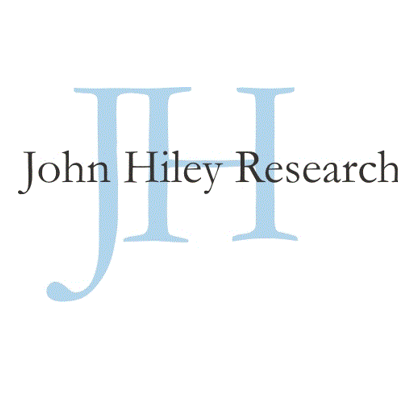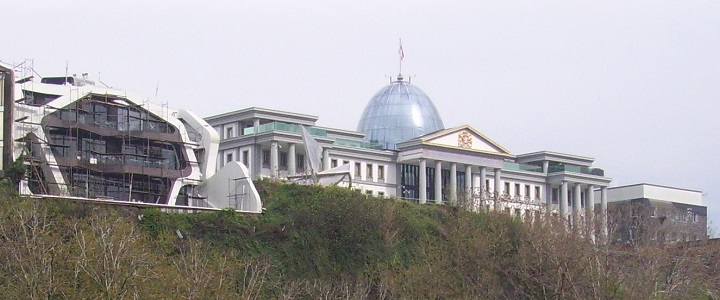With elections due next year Georgia’s ruling Georgian Dream coalition seems to be losing support with economic and political pressures growing.
The coalition was formed to oppose the excesses of the previous Government of former President Mikhail Saakashvili and his centre right United National Movement (UNM). Formed by billionairre businessman Bidzina Ivanishvili Georgian Dream originally brought six political groups together in a populist coalition.
Saakashvili was well thought of in the West credited with reducing corruption and as a staunch ally, with a strong anti Russian stance. He became unpopular in Georgia as a dictatorial and uncompromising figure. It has been suggested that corruption moved away from abuse within the public sector towards the private sector. One UNM member described him to me as eccentric.
Many of Saakashvilis aims were supported by Georgians, especially turning the country into a modern part of Europe. He was uncompromising in refusing to accept the Russian occupation of 18% of Georgia; but that didn’t mean that Georgians supported the disastrous war of 2008 which Georgia had no chance of winning.
Under Saakashvili modern Government buildings and street art were constructed, transforming Tbilisi. But the excesses provoked criticism by many who felt that much of the historic parts of the city were destroyed or at risk. In some cases businesses and homes had to make way for these developments.
One Georgian Dream Minister told me that there are limits to the number of people that a Government can alienate without paying a price. And unemployment remained high.
Saakashvili was also criticised for the use of tear gas and rubber bullets against political protesters and the Government accused of allowing the mistreatment of prisoners.
So when the reclusive Bidzina Ivanishvili established Georgian Dream there was considerable support. People believed that Ivanishvili, Georgias most successful businessman, had the qualities needed to build a better future for the country and that his own immense wealth meant that he would be beyond corruption. He was a huge benefactor of the arts, sports and his home region of Sachkhere.
In fact the coalition was populist in nature, embracing a wide range of political views, led and bankrolled by Ivanishvili. It swept to power in the 2012 Parliamentary Election, gained the Presidency in 2013 and won local and Mayoral elections in 2014.
Ivanishvili became Prime Minister but resigned after 13 months in favour of his long standing friend Irakli Garibashvili. However he continues to claim credit for the defeat of the UNM, fund Georgian Dream and express his views publically.
The six parties of Georgian Dream were:- The Conservative Party of Georgia; the pro-business Industry Will Save Georgia; National Forum, one of a few parties in Georgia opposed to NATO membership; the Republican Party of Georgia, a member of Liberal International; the Free Democrats which also espouses Liberal principles and the Green Party.
The parties had little in common apart from their opposition to the UNM, and the Free Democrats left the coalition in January 2015. One Republican Party MP expressed concerns to me about ‘far right’ members. The one thing that holds the coalition together is an intense dislike of Saakashvili and the UNM.
The battle of words between Georgian Dream and the UNM sometimes verges on the ridiculous with each blaming the other for all of Georgia’s problems. When the Georgian currency fell in value a Government spokesman blamed it on the strength of the dollar and adverse publicity from the UNM. When Georgia’s fancied contestant in the Eurovision Song Contest finished a disappointing 11th Saakashvili blamed the Government for a falling Georgian popularity in Europe!
A number of UNM politicians have been arrested, actions that the UNM claim are politically motivated. Former Prime Minister Vano Merabishvili was imprisoned for five years for abuse of office, bribing voters and inefficient use of Government funds. Former Mayor of Tbilisi Gigi Ugulava is currently under arrest for misuse of public funds.
Saakashvili himself has left Georgia where he too is charged with a number of offences. He is currently Governor of Odessa and has taken out Ukrainian citizenship and renounced Georgian citizenship so that he cannot be extradited under the Ukrainian constitution. Sadly he has called for vengeance if the UNM triumph over Georgian Dream in next years elections.
The economy is in a state of collapse. Yet politicians have been hitting the headlines for different reasons. Ivanishvili turned on Georgian President Margvelashvili who had decided to reside in the Presidential Palace. The Palace was built by Saakashvili overlooking the Mtkvari river, and Ivanishvilis residence on the other side of the valley. Ivanishvili took its building personally and had wanted his party’s President to live elsewhere.
After the flood that hit Tbilisi on June 14th 2015 the World watched TV coverage of animals that escaped from the zoo. The handling of events by the Government has been widely criticised. There were no warnings given, despite the fact that the flood waters had built up over a three hour period; a tiger killed someone a day after the Government claimed that all animals had been caught; rescue helicopters had been allowed to fall into disrepair and most of the clean up work was carried out by volunteers with Government vehicles unable to get to the scene.
The Government criticised the Zoo Keeper for the escape of the animals which backfired as residents demonstrated in support of the Zoo Keeper and against the Government.
With the election next year there is also intense debate over the electoral system. 73 of Georgia’s 150 MP’s are elected by a first past the post system, the remainder through proportional representation. This is meant to ensure that people have a representative to approach and to ensure that minorities are able to be represented.
However the proportional element is meaningless as first past the post means that the largest party is likely to have an absolute majority. In addition MP’s representing minorities are only likely to have influence if they give their support to the ruling group.
Controversially constituency sizes vary from over 150,000 voters to less than 6,000.
The UNM, who supported the system until they lost power are now keen to introduce a fairer system, while Georgian Dream want changes to the system to be delayed until after the election, although the liberal Republican Party support early change.
Georgia has not escaped the fall out of both sanctions against Russia and the Greek financial crisis – these two countries are the two largest sources of remittances from Georgians working abroad. Remittances from both countries have declined alarmingly.
Opinion polls have shown a decline in support for Georgian Dream from its peak at 60% in 2013 to less than 25%, while support for the UNM remains static at about 12%. Ambitions of joining the EU and NATO seem to be on indefinite hold, resulting in a growth in euroscepticism. Russian interests are campaigning for Georgia to join the Eurasian Union – a Russian rival to the EU – and it seems likely that pro Russian MP’s will be elected next year, with some even predicting that they could form a majority.

